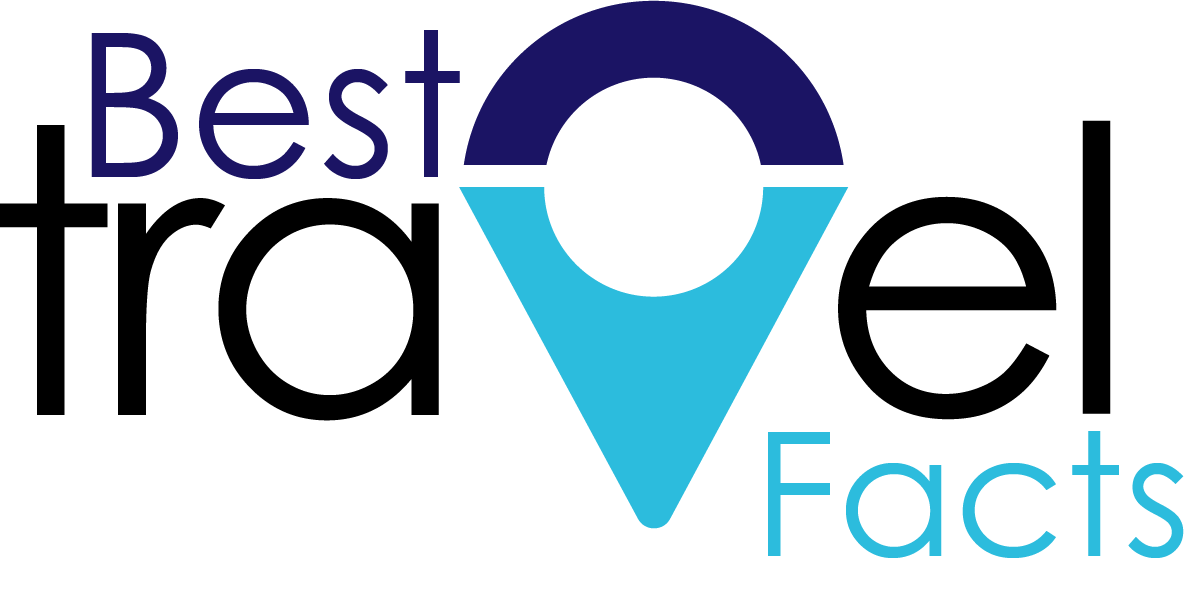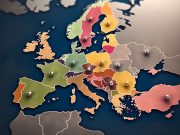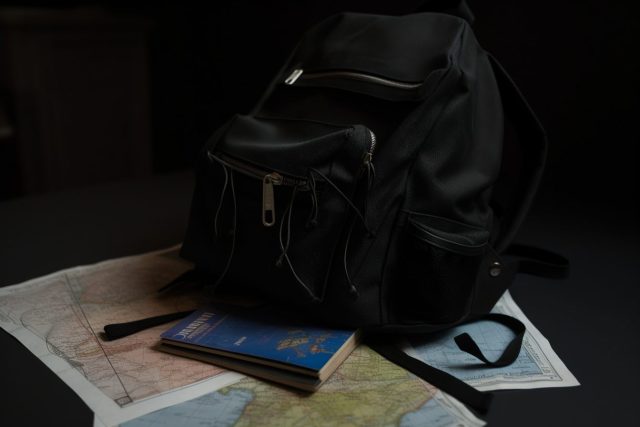One month in Europe is the perfect amount of time for a traveler to take advantage of all that this continent has to offer. From exploring ancient ruins, sampling world-famous cuisine, and taking in unforgettable views – there’s something for every type of traveler out there! But how much money do you need to make your European dreams come true? In this article, we’ll dive into what it takes financially to have an amazing one-month adventure across Europe.
Money plays a major role when planning any kind of travel; however, with careful budgeting and creative thinking, it doesn’t have to be overwhelming. The key is doing research ahead of time so you can get the most bang for your buck during your travels. With some good advice from someone who’s already been there (that’s me!) you can make your European dream trip a reality without breaking the bank!
Research And Planning
Traveling to Europe is an experience of a lifetime and with the right budgeting tips, you can enjoy all its cultural experiences without breaking the bank. Picture yourself strolling along cobblestone streets lined with centuries-old buildings, sipping cafe au lait in quaint cafes, and taking in the vibrant culture that characterizes this amazing continent. Maximizing your time abroad doesn’t need to mean sacrificing quality–in fact, when it comes to Europe, there are plenty of ways to get more bang for your buck. Accommodations come in many different forms so let’s explore those options now…
Accommodations
Accommodations in Europe can range from luxurious to minimalist, but one thing is certain: you don’t want to stay too long or break the bank. Budgeting tips come into play when planning your travels in Europe. Hostels are a great option for budget travelers who don’t mind sharing facilities and rooms with other guests while camping sites offer an inexpensive alternative to hotels. For those seeking more privacy, Airbnb has plenty of options across Europe that provide comfort without breaking the bank.
Language barriers can also be a concern when traveling in Europe as many people speak different languages depending on what country you visit. That said, English is widely spoken throughout most of the continent so it shouldn’t be too hard finding someone to communicate with if needed. It’s important to brush up on some basic phrases before embarking on your trip as this will make communication easier.
With these considerations in mind, accommodations should not take up a large portion of your travel budget if planned properly; leaving room for food and drink experiences which can often be just as memorable!
Food And Drink
When it comes to planning a European trip, budgeting tips and local customs should be taken into consideration. Being on the road for an entire month can quickly add up costs if careful thought isn’t put in beforehand. Here are some helpful tips:
- Do your research: Before getting started, read up on the destination you plan to visit. Knowing what cultural norms are expected of tourists will help you save money by avoiding any unnecessary fines or fees.
- Prioritize experiences over objects: Instead of buying souvenirs, focus more on immersing yourself in the culture; that way, you’ll get far better memories than anything materialistic could ever provide!
- Look out for deals: Shop around online for cheap flights, hotels, transportation options etc., and take advantage of discounts when available. You might even find group packages which would significantly reduce travel expenses!
- Don’t forget about food: Eating home cooked meals is always cheaper than eating out every day – so try finding a place with access to cooking facilities like a hostel or Airbnb apartment. Also look out for special offers at restaurants such as ‘two for one’ days or happy hour menus where drinks won’t cost too much either.
Without breaking the bank, travelers can still make their experience unique and enjoyable through strategic planning prior to departure. To further explore Europe without spending an arm and a leg, efficient transportation is key – especially when traveling long distances across countries…
Transportation
When it comes to traveling in Europe, you’ll need to be prepared for the various currency exchanges and language barriers. The Euro is the main currency used throughout most European countries, but there are still a few areas where other currencies such as the British Pound or Swiss Francs can also be found. It’s important that you research any additional fees associated with exchanging money into local currencies before your trip so that you don’t end up paying more than necessary when on vacation.
In addition to researching different currency exchange rates, it is essential to understand some of the common languages spoken in European countries. While English may be widely spoken in larger cities like London or Paris, many smaller towns across Europe rely heavily on their native tongues –– which often vary from country to country. Investing time in learning some basic phrases before your trip can go a long way towards making sure your experience abroad goes smoothly!
From exploring unique markets to tasting traditional dishes at restaurants, food and drink can really bring out the flavor of each destination. However, make sure that you’re informed about how much money you’ll need during your stay: being aware of currency exchange rates and language barriers will ensure that nothing stands between you and an amazing travel adventure!
Activities And Attractions
Europe is an incredible destination for travelers looking to make lasting memories. From the bustling cities of Paris and Berlin to the picturesque countryside in Italy, it has something for everyone. Exploring Europe can be a great way to experience a variety of cultural experiences while learning new languages and immersing yourself in different cultures.
If you’re interested in sightseeing, there are plenty of options from which to choose. You can take a guided tour through some of the most iconic monuments or explore on your own with a map and camera in hand. Museums offer insight into local history and art galleries showcase both classic works as well as modern pieces by up-and-coming artists.
For those wanting more than just touristy activities, Europe offers numerous opportunities for language learning classes, cooking demonstrations, outdoor adventures like rock climbing or camping trips, as well as unique attractions such as taking part in traditional festivals or visiting historic castles. No matter what type of activities you prefer, there’s sure to be something that piques your interest when traveling around this continent!
Frequently Asked Questions
What Countries Should I Visit In Europe?
Are you dreaming of a European vacation but don’t know which countries to visit? Look no further! Europe is filled with diverse cultures, budgeting tips and experiences that will provide the perfect backdrop for your dream getaway. From visiting old world castles in Germany, exploring France’s iconic landmarks or tasting Greek cuisine on the beautiful beaches of Crete, there are endless possibilities when it comes to planning an unforgettable holiday. With its varying climates and cultural differences between countries, you can find something to make your journey unique; so pack your bags and start discovering what Europe has to offer – just remember to bring enough money!
How Much Spending Money Should I Bring?
If you’re planning a trip to Europe, one of the most important things to consider is budgeting. Currency exchange rates vary from country to country, so it’s essential that you bring enough spending money with you. When deciding how much cash you should take along on your adventure, there are some helpful tips and tricks to keep in mind. First, research what currency each destination uses and be sure to have a good grasp on any recent exchange rate fluctuations. Additionally, make sure you have access to credit cards or ATMs if needed during your travels. Finally, aim for a budget that allows flexibility since unexpected expenses can arise while traveling abroad!
What Is The Most Cost-Effective Way To Travel In Europe?
Traveling in Europe on a budget doesn’t have to be challenging. With the right planning and forethought, you can make your trip affordable while still having an amazing experience. To get started, it’s important to understand currency exchange rates and look for budget-friendly flights and accommodations. You might also consider taking public transportation or utilizing ride sharing services when possible. Additionally, researching local discounts such as student cards or city passes can go a long way towards saving money and making your journey cost-effective. By following these tips, you’ll be able to stretch your travel dollars further so that you can enjoy all of the fantastic sights and attractions Europe has to offer!
Are There Any Discounts Or Special Offers Available For Travelers?
When it comes to budgeting tips for travelers in Europe, there are a few options available. Travel insurance is essential and can provide significant discounts on flights, accommodation and other expenses. Additionally, many airlines offer special offers such as free baggage allowance or discounted tickets when booking multiple legs of your trip at once. For those willing to book further ahead of time, some airlines also offer early bird specials which can save you hundreds off the regular fare price. There’s even an array of travel agents who specialize in finding deals for European destinations that can help make planning your vacation simple and cost-effective. So don’t forget to explore all the possibilities before committing to one option – with a little bit of research and creativity you’re sure to find plenty of ways to save money while traveling in Europe!
What Safety Precautions Should I Take While Traveling In Europe?
Traveling in Europe can be a life-changing experience, but you need to make sure that your safety is always top of mind. From cultural differences and language barriers to unfamiliar surroundings and potential scams, there are plenty of things to consider before embarking on an adventure abroad. It’s important to research the areas you plan to visit ahead of time so you know what kind of precautions may be necessary. Make sure you have copies of all relevant documents such as passports and visas, bring enough money for emergencies, and stay aware of your surroundings while navigating public transportation or walking around cities. Additionally, it’s helpful to learn some basic phrases in the local language; this could help if you find yourself in a difficult situation or just want to blend in with the locals!
Conclusion
It is clear that with a little bit of planning, you can have the European adventure of your dreams. With careful budgeting and research into discounts and special offers available for travelers, there’s no reason why you can’t make this trip happen without breaking the bank.
To ensure a safe and enjoyable journey, take some time to familiarize yourself with safety precautions in each country. And most importantly—have fun! Whether it be exploring vibrant cities or lounging on stunning beaches, Europe has something magical to offer everyone. So don’t wait any longer—start packing those bags and get ready for an unforgettable experience!




























